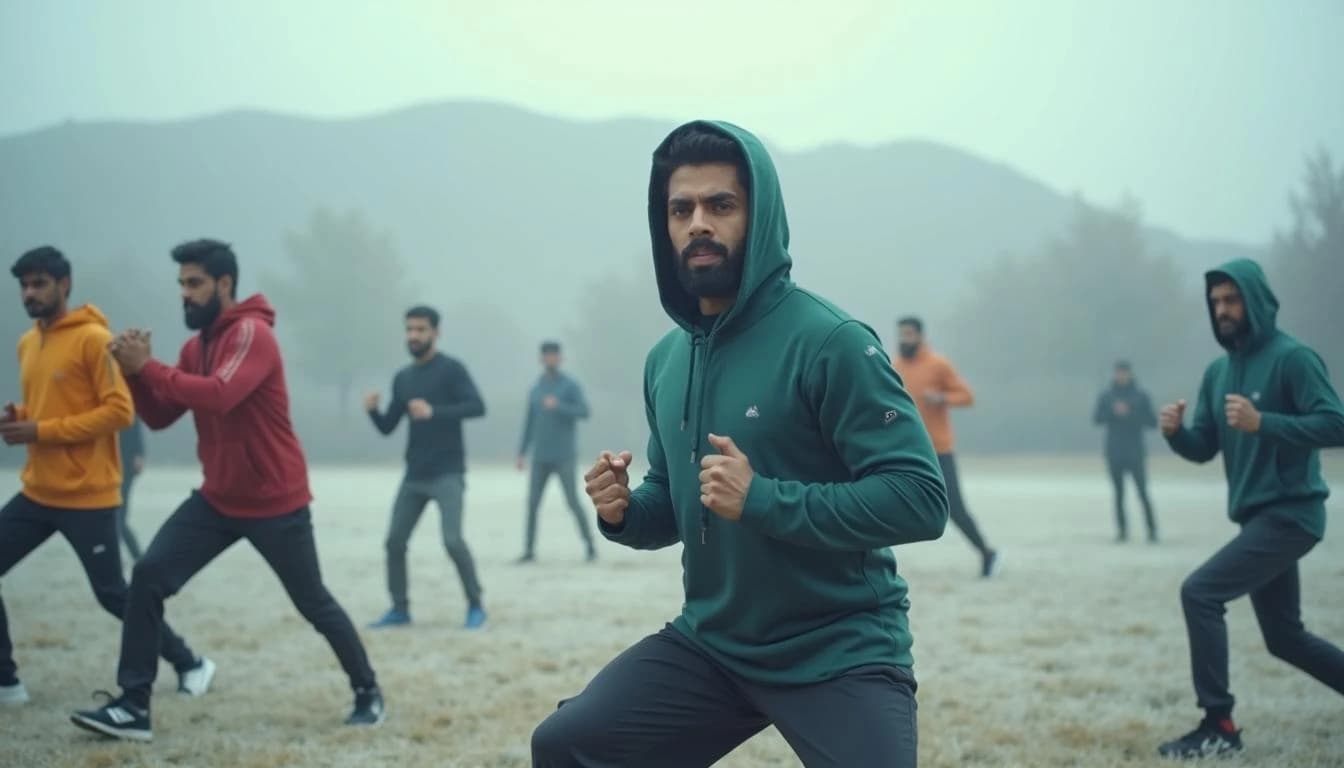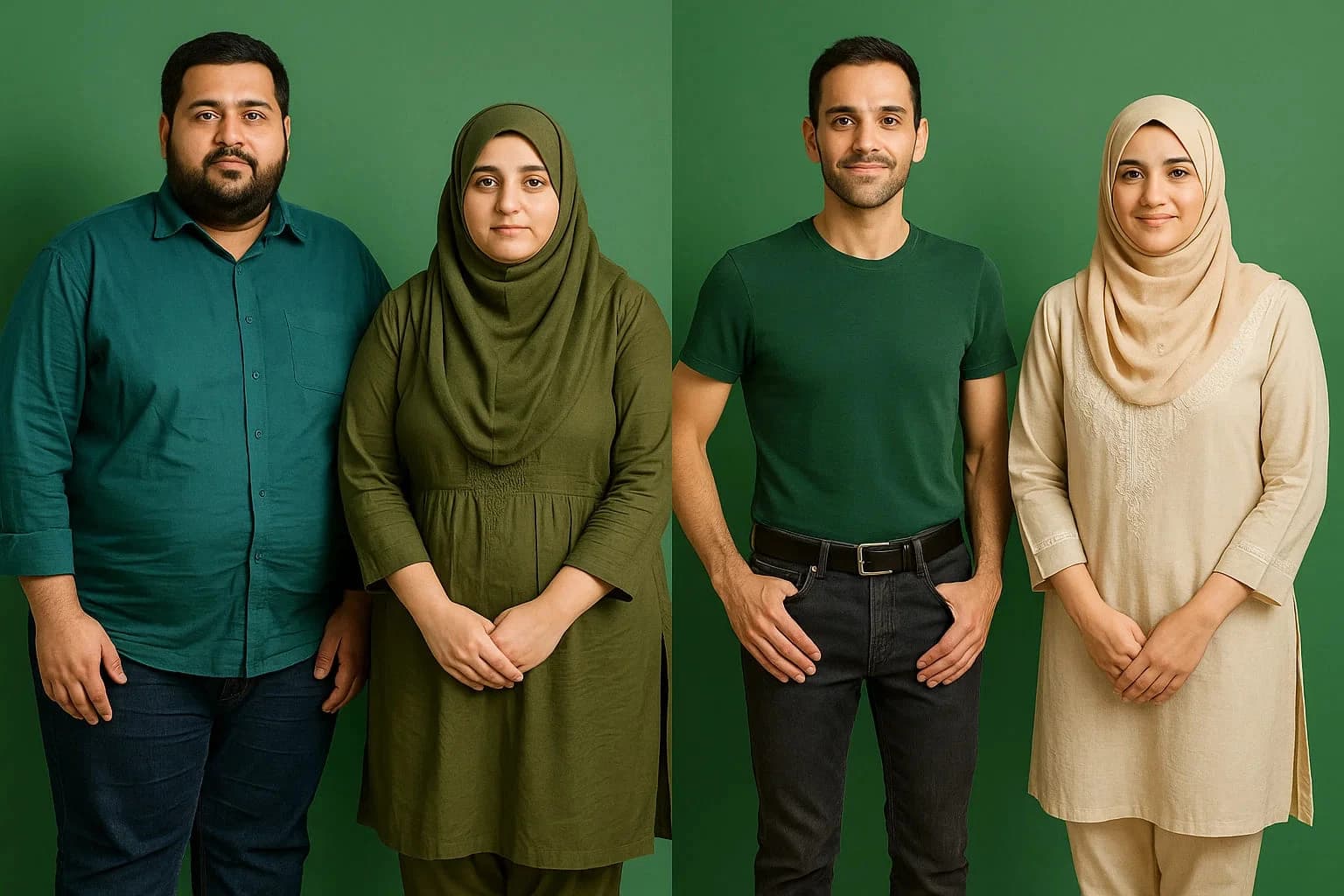© 2025 Roz UpdatesbyTETRA SEVEN

* All product/brand names, logos, and trademarks are property of their respective owners.
In the heart of Pakistan’s rapidly evolving wellness landscape, one generation stands out as a catalyst for change: Generation Z. Born between the mid-1990s and early 2010s, Gen Z is known for its digital fluency, progressive thinking, and passion for individuality. In Pakistan, this generation is not just reshaping industries—they're redefining the nation’s entire approach to health and fitness.
Unlike previous generations who primarily associated fitness with aesthetics or traditional gym workouts, Gen Z embraces a more holistic and lifestyle-oriented approach. For them, fitness is not just about lifting weights or counting calories; it’s about building mental resilience, forming communities, leveraging technology, and aligning wellness with identity. Whether through guided meditation apps, smartwatch-tracked HIIT sessions, or community fitness meetups in Lahore and Islamabad, Gen Z is rewriting the rules of how Pakistan engages with health.
Social media platforms like TikTok and Instagram have become powerful tools for discovering workouts, tracking progress, and staying motivated. Local influencers and global trends alike inform their choices, from clean eating and intermittent fasting to self-care routines and mindfulness practices. More impressively, they are making wellness accessible—bringing fitness into living rooms through YouTube, Zoom, and fitness apps, often without the need for expensive gym memberships.
This blog dives deep into the ways Gen Z is changing the fitness game in Pakistan. We’ll explore how they use technology to stay fit, how community and identity shape their routines, the integration of mental health into physical fitness, and what challenges still lie ahead. Whether you're part of Gen Z or simply curious about the youth-led fitness revolution, this journey through their impact will give you insights into the future of health and wellness in Pakistan.
Tech-savvy by nature, Gen Z in Pakistan is leveraging fitness technology like never before. Fitness apps such as MyFitnessPal, Nike Training Club, and Fitbod are staples on their smartphones, helping them log meals, track workouts, and monitor progress in real time. Locally developed platforms, like AimFit and Bajwa Gym’s app, offer tailored workout plans and regional accessibility. Wearable tech—ranging from Fitbits and Apple Watches to more affordable Xiaomi and Huawei bands—has become a part of their daily attire, providing data on heart rate, calories burned, and sleep cycles. This integration of tech makes fitness a 24/7 endeavor, blurring the line between routine and lifestyle.
For many Gen Z Pakistanis, the gym is optional. With internet access and a smartphone, they can access personal trainers, curated YouTube workouts, and subscription-based classes from anywhere. Influencers like Mahnoor Sheikh and brands like TriFit Online have tapped into this demand, offering customized fitness coaching via WhatsApp, Instagram, and Zoom. This democratization of fitness—especially during and after the COVID-19 pandemic—has empowered students, homemakers, and young professionals to maintain fitness regimes without commuting or adhering to gym schedules.
In major cities, the emergence of smart gyms—equipped with QR-coded machines, virtual trainers, and app-linked memberships—is reshaping the traditional fitness experience. Digital accountability features like fitness streaks, daily goals, and virtual leaderboards help Gen Z stay engaged and competitive. Some even gamify their workouts, turning health into a rewarding, interactive experience. These tools not only enhance convenience but also support consistency, which is often the hardest part of any fitness journey.
Social media is the heartbeat of Gen Z’s fitness journey in Pakistan. Platforms like TikTok, Instagram, and YouTube are flooded with fitness content—ranging from home workout routines and meal preps to transformation stories and wellness tips. Viral fitness challenges, like the 30-day ab challenge or 100-pushup test, fuel motivation and community spirit while also encouraging accountability. These influencers act as virtual trainers, mentors, and motivators, helping Gen Z form a strong connection between self-expression and self-care.
For many Gen Z individuals, fitness is no longer a side activity—it’s a part of their identity. They wear their wellness journeys like badges of honor, curating fitness-focused social feeds that showcase progress, daily routines, mental health reflections, and body positivity. This shift has turned personal wellness into personal branding. Whether it’s through posting gym selfies, sharing calorie-tracking apps, or launching their own fitness-related side hustles, Gen Z is normalizing fitness as a way of life. It's less about perfection and more about authenticity, growth, and consistency.
Beyond the digital world, Gen Z is reviving a sense of fitness community in real life. Group workouts—like bootcamps in Islamabad’s F-9 Park, outdoor yoga sessions in Lahore, and Zumba pop-ups in Karachi—have become popular avenues for socializing and accountability. Startups and fitness studios are tapping into this demand, offering group-based memberships and community events that promote a sense of belonging. These spaces often become judgment-free zones where individuals can connect over shared goals, struggles, and triumphs, regardless of fitness level.
Gen Z in Pakistan is leading a cultural shift in how health is defined—moving beyond physical appearance to include emotional well-being and mental clarity. With academic pressures, economic uncertainty, and digital overload, stress and anxiety are prevalent issues for this generation. Instead of suppressing these struggles, Gen Z is talking about them—on podcasts, in Instagram captions, and through wellness content. Fitness is now seen as a powerful tool for managing mental health. Exercise is no longer just about weight loss or muscle gain; it’s about releasing endorphins, boosting energy, and combating anxiety.
Mindfulness, once considered niche or spiritual, is now a mainstream component of Gen Z’s wellness toolkit. Apps like Calm, Headspace, and even Urdu-language mindfulness content are gaining traction among young Pakistanis. Yoga studios in Lahore, Islamabad, and Karachi offer sessions that blend physical flexibility with breathwork and meditation—an appealing combination for a generation that values balance and inner peace. School and university wellness clubs are also incorporating guided meditation and mental resilience workshops to help students handle stress proactively.
What truly sets Gen Z apart is their willingness to integrate therapy and fitness into a single wellness narrative. Many are open about attending therapy sessions or using mental health apps alongside their physical fitness routines. For example, pairing a morning workout with a five-minute meditation or journaling session is becoming a common practice. Instagram accounts dedicated to mental health advocacy often overlap with fitness influencers, showing a fusion of mind and body care. This blending signifies a new definition of strength—where vulnerability, self-awareness, and emotional health are as important as physical endurance.
Despite Gen Z’s forward-thinking mindset, access to fitness resources in Pakistan remains uneven. Urban centers like Karachi, Lahore, and Islamabad are flooded with modern gyms, wellness apps, and community events. In contrast, rural areas still face significant barriers—lack of infrastructure, cultural stigma around exercise (especially for women), and limited access to internet-based solutions. This divide hampers the reach of Gen Z’s digital-first fitness model, making inclusivity a persistent challenge. Without targeted policies or localized initiatives, rural youth may remain disconnected from this nationwide movement.
Even within cities, Gen Z faces cultural pushback. Many still encounter resistance from families who view fitness—especially for young women—as unnecessary or inappropriate. The notion that investing time and money in wellness is a “luxury” rather than a necessity still persists. These generational and societal expectations can stifle fitness aspirations or lead to burnout as Gen Z juggles traditional responsibilities with modern lifestyles. Overcoming these perceptions requires continued advocacy, education, and support from media, institutions, and health professionals.
Looking ahead, the future of Gen Z fitness in Pakistan is rooted in personalization and sustainability. From DNA-based nutrition planning to AI-powered workout regimens, the next wave of fitness innovation will be tailored to individual needs and lifestyles. There is also a growing emphasis on longevity, not just aesthetics—focusing on functional fitness, mental resilience, sleep hygiene, and gut health. Environmental consciousness is also creeping into the wellness sphere, with sustainable gym gear, plant-based diets, and low-impact workouts gaining popularity.
If supported with inclusive infrastructure, cultural sensitivity, and smart policy, Gen Z’s approach could revolutionize public health in Pakistan. They are not just transforming how the nation exercises—they’re reshaping how it defines health, one mindful rep at a time.
Generation Z has emerged as the driving force behind a fitness transformation in Pakistan—one that transcends traditional gym routines and superficial goals. With a deep understanding of technology, a heightened sensitivity to mental health, and a strong desire for authenticity, Gen Z has redefined what it means to be “fit.” For them, wellness is not just about building bodies—it’s about building better lives, communities, and futures.
Yet, the journey is far from over. The urban-rural divide, cultural stigmas, and lack of formal fitness education still present real challenges. But if current trends continue—and if institutions, policymakers, and businesses support their momentum—Gen Z’s influence could lay the foundation for a healthier, more conscious Pakistan.
The message is clear: Gen Z isn’t just participating in fitness—they’re leading it. And it’s time for the rest of the country to catch up.

9 October 2025

23 September 2025
No comments yet. Be the first to comment!